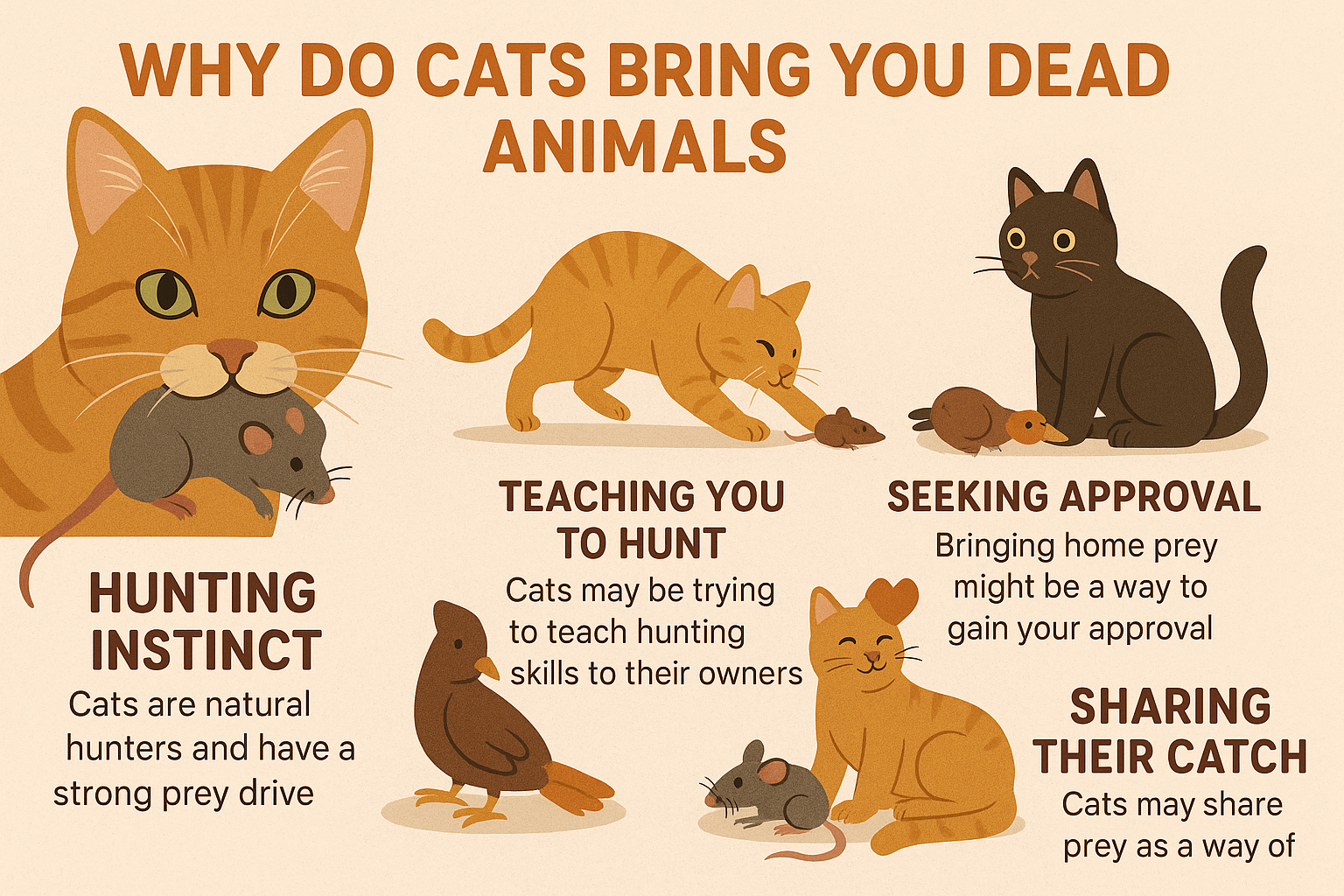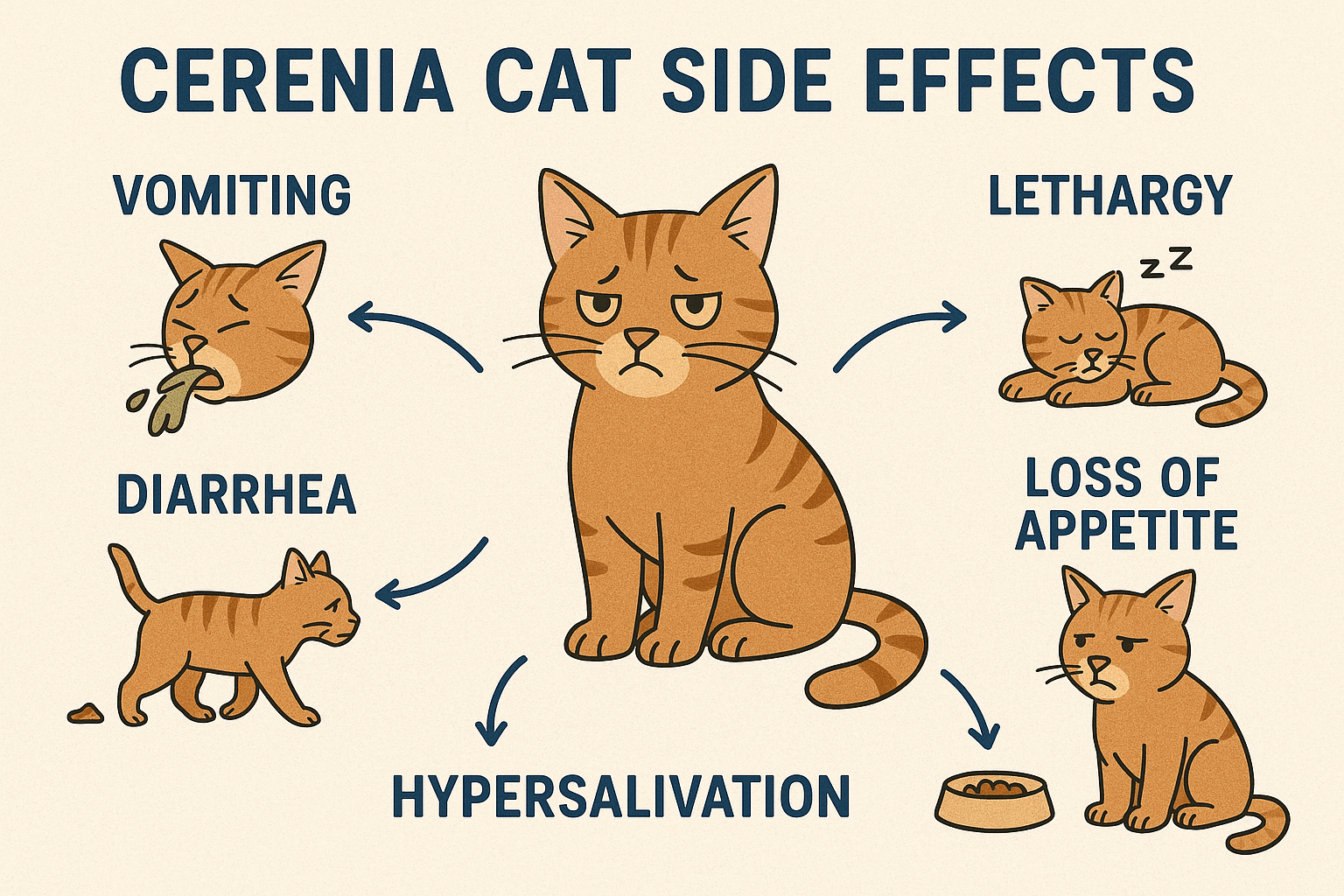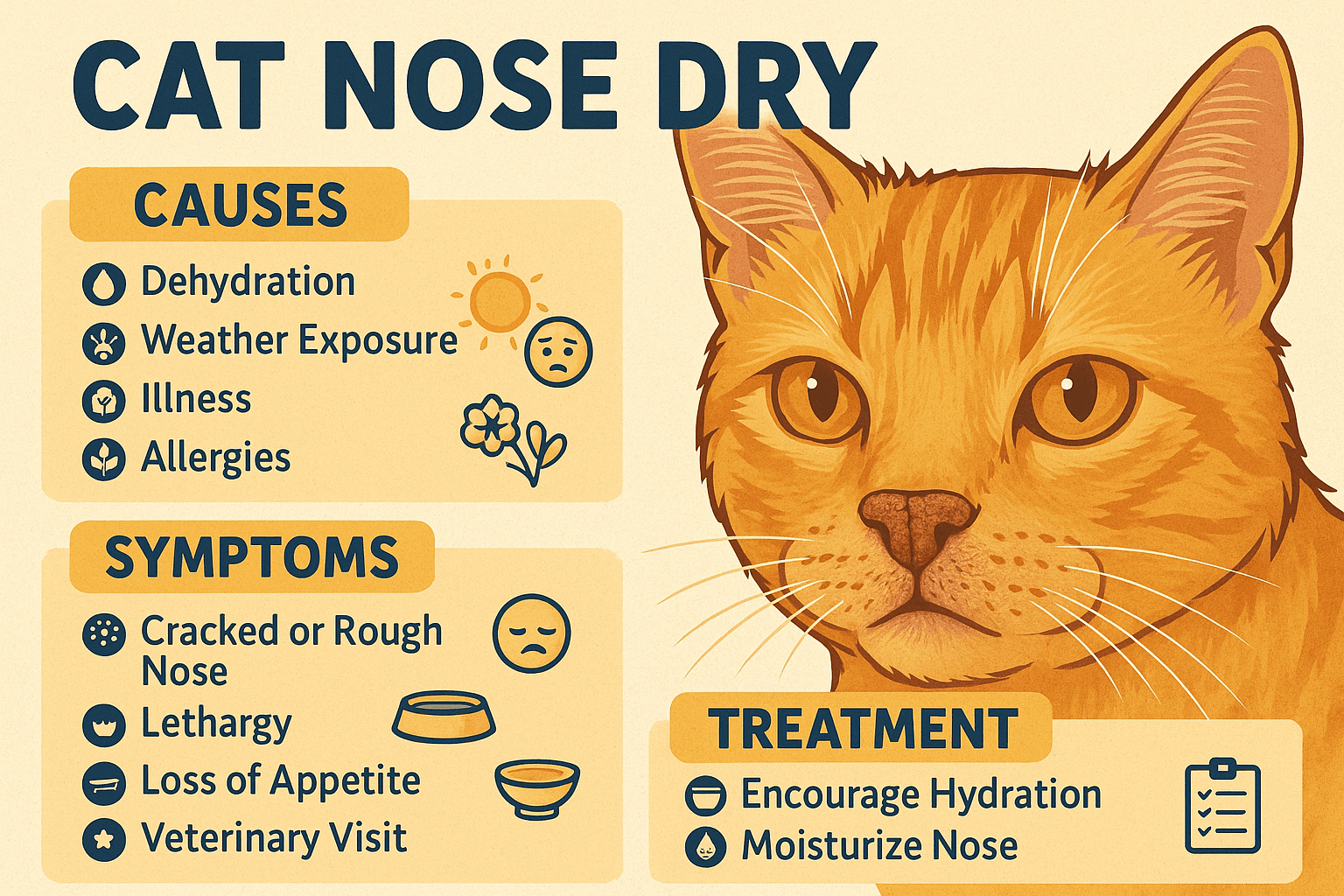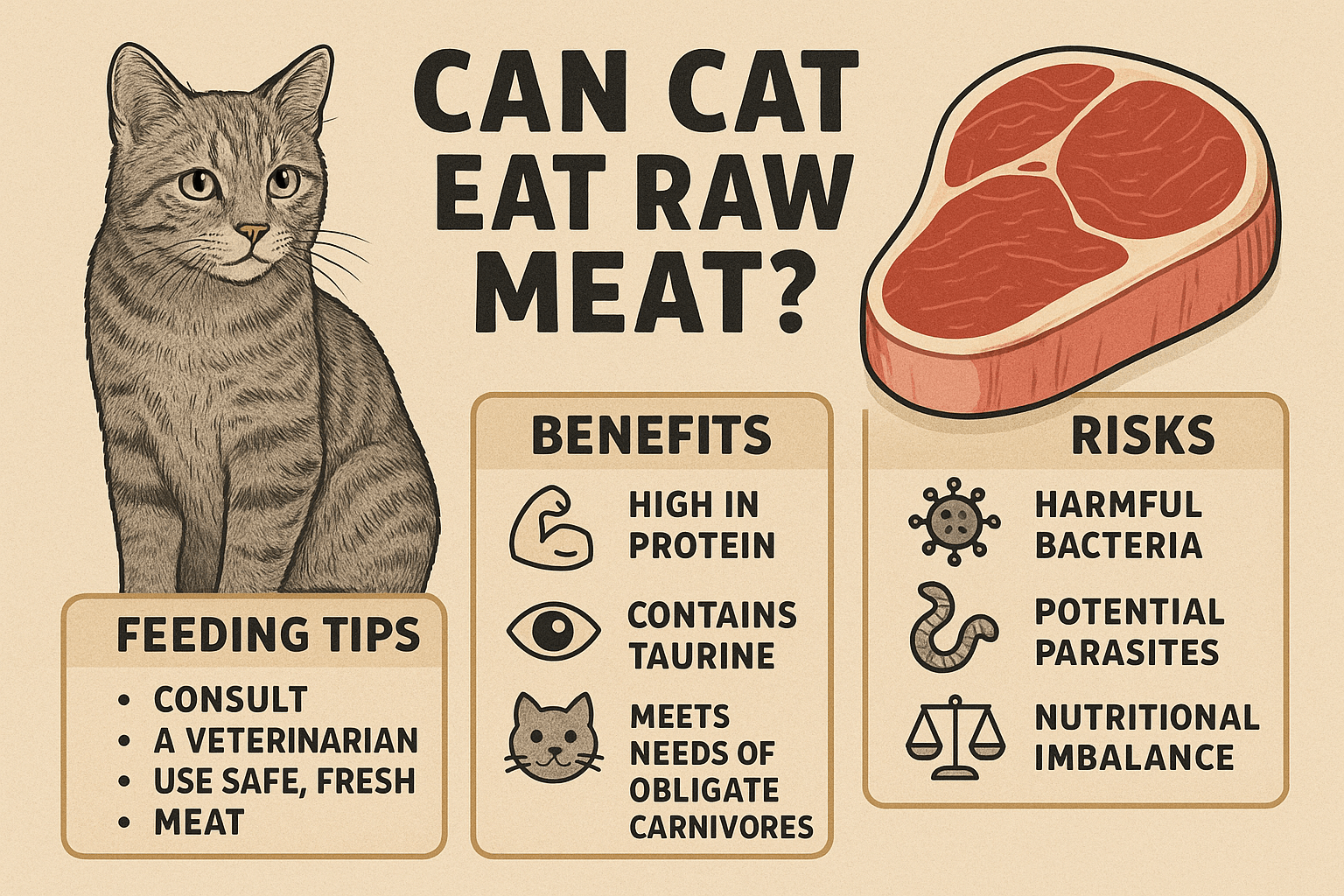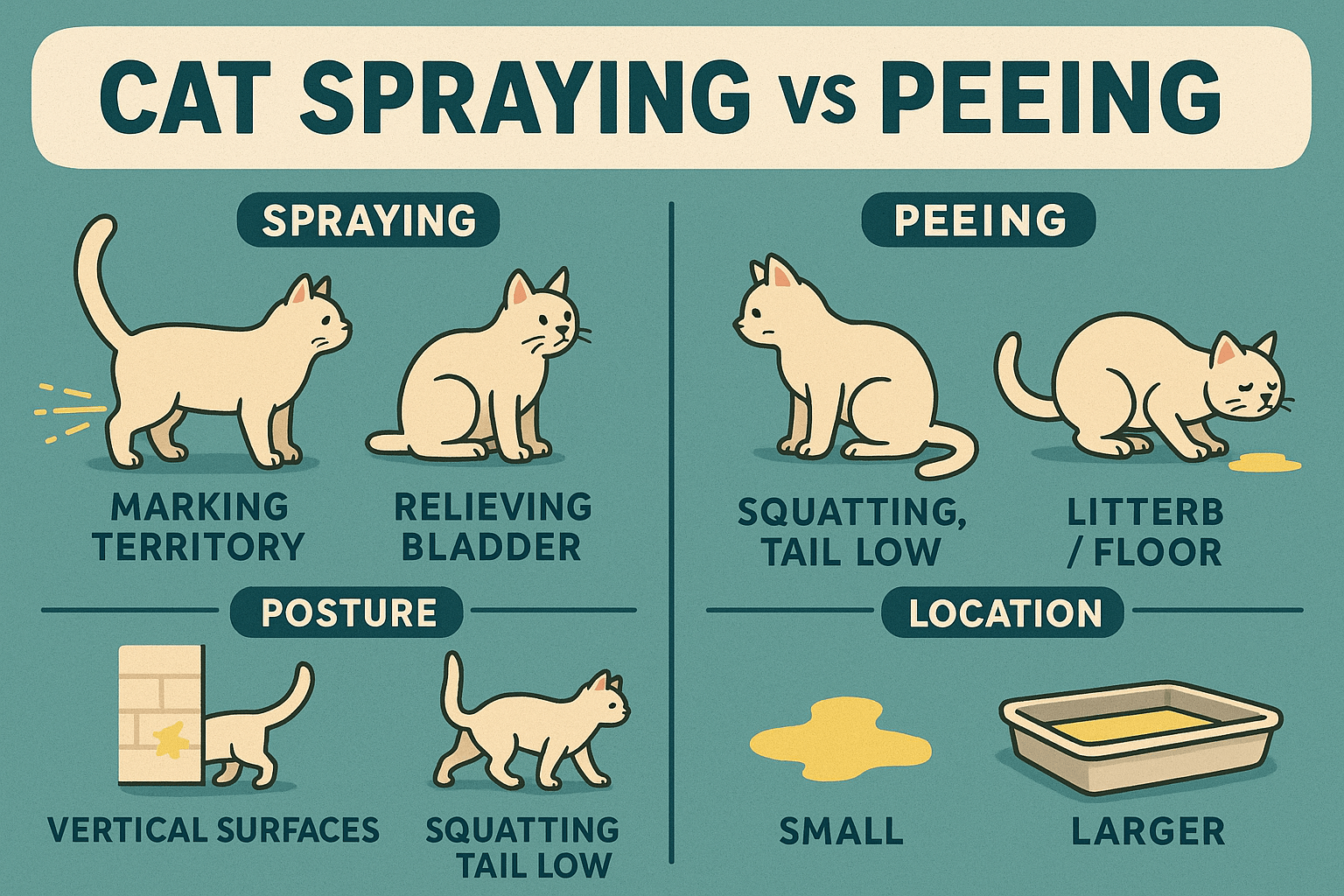Why Do Cats Bring You Dead Animals?
If you’ve ever been greeted by your cat proudly presenting a dead mouse, bird, or other small creature, you may have wondered why they engage in this peculiar behavior. While it might seem unsettling or even disturbing to us, cats have perfectly logical reasons for bringing home “gifts.” Rooted in their instincts, social bonds, and natural hunting behaviors, this act is far from random—it’s a deeply ingrained part of their nature. Understanding why cats bring you dead animals can help you appreciate their intentions and strengthen the bond you share with your feline companion. Let’s explore the fascinating motivations behind this behavior and how to handle it gracefully.
The Instinctual Reasons Behind This Behavior
Cats are natural-born hunters, and their actions are often driven by instincts that have evolved over thousands of years. These instincts explain why they bring you dead animals as “presents.”
Hunting Instincts:
Cats are wired to hunt, even if they’re well-fed indoor pets. Bringing prey back is an extension of their natural predatory behavior.Teaching You to Hunt:
Mother cats teach their kittens how to hunt by bringing them injured or dead prey. Your cat may view you as a surrogate kitten in need of similar guidance.Sharing the Spoils:
In the wild, cats sometimes share food with members of their group. By bringing you prey, your cat is including you in their “family circle.”Showing Affection:
For cats, offering prey is a way of expressing love and trust. It’s their version of giving you a thoughtful gift.Seeking Approval:
Cats thrive on positive reinforcement. If you react positively (even unintentionally), they may repeat the behavior to earn your approval.
These instinctual drivers highlight that your cat’s intentions are rooted in care and connection, even if the “gift” itself isn’t always welcome.
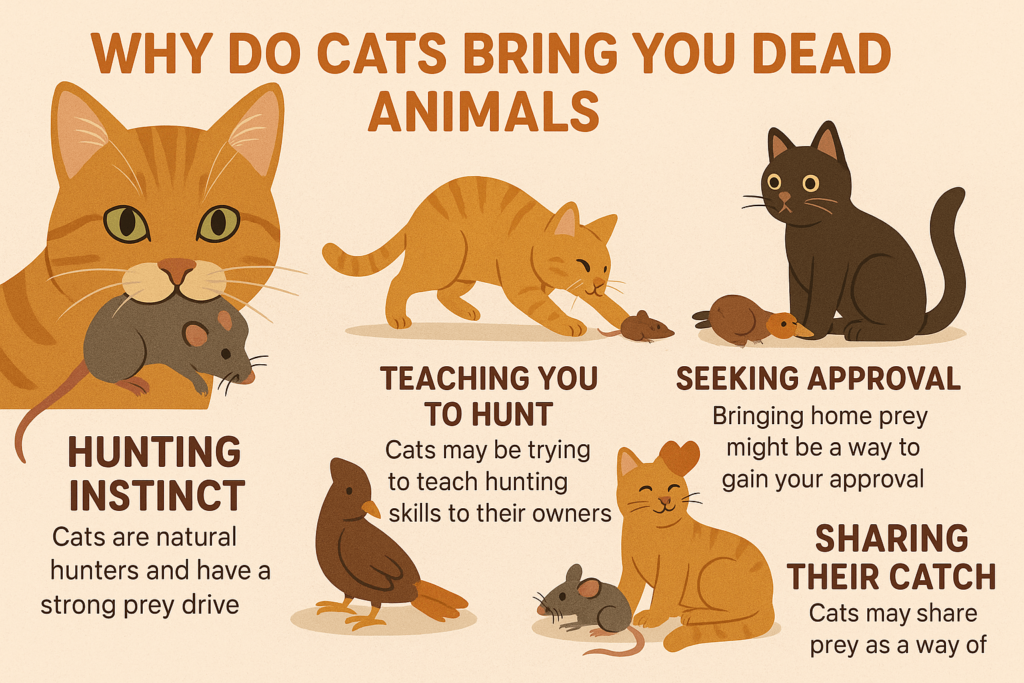
How to Respond When Your Cat Brings You Prey
Receiving a dead animal from your cat can be surprising or even distressing, but how you respond matters. A calm and understanding reaction helps maintain your bond while discouraging unwanted behavior.
Stay Calm and Avoid Punishment:
Scolding or punishing your cat can damage your relationship and confuse them, as they don’t understand why their gift isn’t appreciated.Redirect Their Energy:
Provide plenty of toys and activities to channel their hunting instincts into play instead of real prey.Secure Outdoor Access:
If your cat roams outdoors, consider supervised outings or using a catio to limit their access to wildlife.Dispose of the Prey Discreetly:
Remove the animal without making a fuss to avoid reinforcing the behavior through attention.Reward Alternative Behaviors:
Praise your cat when they engage in non-hunting activities, such as playing with toys or cuddling with you.
By responding thoughtfully, you can manage this behavior while respecting your cat’s natural instincts.
Check this guide 👉What Is a Cat Behaviorist? Best 7 Expert Tips!
Check this guide 👉Cat Behavior After Being Lost: Best 7 Expert Tips!
Check this guide 👉Understanding Cat Behavior After a Vet Visit: Best 7 Tips!
Reasons Cats Bring Dead Animals | Ways to Discourage Hunting Behavior |
|---|---|
Teaching you to hunt | Provide interactive toys for mental stimulation |
Sharing food as a social gesture | Use puzzle feeders to satisfy hunting instincts |
Expressing affection and trust | Keep cats indoors or in secure outdoor enclosures |
Reinforcing instincts through praise | Reward non-hunting behaviors with treats |
Including you in their “family” | Redirect energy toward playtime and exercise |
Why Indoor Cats May Still Exhibit This Behavior
Even indoor cats, who rarely encounter live prey, may occasionally bring you “dead animals”—whether it’s a toy mouse or another household item. This behavior stems from their innate instincts and environmental factors.
Simulating Hunting:
Indoor cats often mimic hunting by treating toys or objects as prey. This satisfies their natural drive to stalk and capture.Bonding Through Play:
Bringing you a toy mouse or other object is their way of sharing a “hunt” with you, just like outdoor cats do with real prey.Curiosity About Movement:
Cats are drawn to moving objects, which they associate with potential prey. They may “catch” items like socks or hair ties and present them to you.Attention-Seeking Behavior:
If your cat feels neglected, they may use these “gifts” as a way to grab your attention and interact with you.Territorial Marking:
Some cats bring items to specific spots in the house as a way of marking their territory and involving you in their domain.
Understanding these behaviors helps you see your indoor cat’s actions in a new light, even if no actual animals are involved.
How to Prevent Your Cat From Catching Wildlife
If your cat frequently brings home real prey, there are steps you can take to minimize their impact on local wildlife. These measures also protect your cat from potential dangers outdoors.
Keep Your Cat Indoors:
An indoor lifestyle significantly reduces the chances of your cat encountering wildlife.Use a Catio or Enclosure:
A secure outdoor space allows your cat to enjoy fresh air without harming birds or small animals.Attach a Bell to Their Collar:
Bells make it harder for cats to sneak up on prey, giving wildlife a chance to escape.Provide Enrichment Indoors:
Interactive toys, climbing structures, and window perches keep your cat entertained and less focused on hunting.Supervise Outdoor Time:
If your cat goes outside, accompany them to ensure they stay safe and away from wildlife.
By implementing these strategies, you can balance your cat’s needs with the well-being of local ecosystems.
Tips for Strengthening Your Bond Without Encouraging Hunting
Building a strong bond with your cat doesn’t have to involve accepting dead animals. Here are some ways to connect with your feline companion while steering clear of unwanted hunting behaviors.
Engage in Interactive Play:
Use wand toys or laser pointers to simulate hunting in a controlled, harmless way.Offer Treats for Good Behavior:
Reward your cat when they focus on toys instead of real prey to reinforce positive habits.Create a Safe Outdoor Space:
Build or purchase a catio where your cat can safely observe the outdoors without harming wildlife.Teach Recall Training:
Train your cat to come when called, allowing you to supervise their outdoor adventures more effectively.Spend Quality Time Together:
Dedicate time each day to grooming, cuddling, or playing with your cat to strengthen your emotional connection.
These strategies help deepen your bond while minimizing unwanted behaviors.
The Role of Diet in Reducing Hunting Urges
A cat’s diet can influence their hunting behavior, as nutritional needs and instincts are closely linked. Ensuring your cat receives a balanced diet may help curb excessive hunting tendencies.
High-Protein Diets:
Feeding your cat high-quality protein-rich food satisfies their carnivorous cravings and reduces the urge to hunt.Puzzle Feeders:
Using puzzle feeders mimics the challenge of hunting and keeps your cat mentally stimulated.Scheduled Meals:
Establishing regular feeding times helps regulate hunger and decreases the likelihood of hunting out of necessity.Avoid Overfeeding:
Overfeeding can lead to obesity, which may disrupt your cat’s natural activity levels and instincts.Consult Your Veterinarian:
Discuss dietary adjustments with your vet to ensure your cat’s nutritional needs are met without encouraging hunting behaviors.
Proper nutrition plays a key role in managing your cat’s instincts and overall well-being.
Understanding the Impact of Hunting on Local Wildlife
While hunting is natural for cats, it can have significant consequences for local ecosystems. Being aware of these impacts allows you to take responsible steps to protect both wildlife and your pet.
Decline in Bird Populations:
Domestic cats are responsible for millions of bird deaths annually, contributing to declining populations worldwide.Disruption of Ecosystem Balance:
The removal of small mammals and birds can destabilize delicate ecological systems.Disease Transmission Risks:
Cats exposed to wildlife may carry diseases or parasites, posing risks to both humans and pets.Injuries to Cats:
Hunting exposes cats to dangers like fights with other animals or encounters with vehicles.Responsible Pet Ownership:
Taking proactive measures to prevent hunting demonstrates respect for wildlife and your community.
By addressing these concerns, you contribute to a healthier environment for all living creatures.
Frequently Asked Questions About Cats Bringing Dead Animals
Why does my cat leave dead animals at my door?
Cats often leave prey at entry points as a way of sharing their catch with you, their “family.”
Is it normal for spayed or neutered cats to hunt?
Yes, hunting is an instinctual behavior unrelated to reproduction, so fixed cats will still exhibit this trait.
Should I punish my cat for bringing me prey?
No, punishment can harm your bond. Instead, redirect their behavior through play and enrichment.
How can I stop my cat from killing wildlife?
Keeping your cat indoors, using a catio, or attaching a bell to their collar can reduce hunting incidents.
Why does my cat only bring me toys instead of real animals?
Indoor cats simulate hunting by treating toys as prey, fulfilling their natural instincts in a safer environment.
Embracing Your Cat’s Natural Instincts with Compassion
While finding a dead animal on your doorstep may not be the most pleasant experience, it’s important to recognize the love and trust behind your cat’s gesture. Their behavior is a reflection of their instincts, social bonds, and desire to connect with you. By understanding and addressing these motivations with patience and creativity, you can nurture a harmonious relationship with your feline friend. Whether through play, enrichment, or simply appreciating their unique quirks, embracing your cat’s instincts ensures a happy and healthy life together—for both of you.
Cerenia Cat Side Effects: Best 7 Expert Tips! Discover expert advice on managing Cerenia side effects, ensuring your cat’s safety, and promoting a smooth recovery with practical tips.
Why Is My Cats Nose Dry? Best 7 Expert Tips! Discover expert advice on causes of dry cat noses, signs of concern, and how to keep your feline healthy and comfortable.
Can Cats Eat Raw Meat? Best 7 Expert Tips! Discover the benefits, risks, and expert advice on feeding raw meat to cats safely and nutritiously.
Cat Spraying vs. Peeing: Best 7 Expert Tips! Learn to identify the differences, understand causes, and stop unwanted behaviors with proven strategies for a cleaner, stress-free home.

